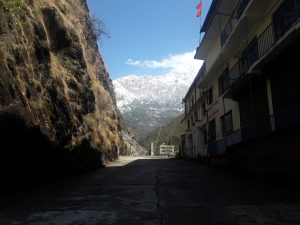After months of denial, Russia has invaded Ukraine via land, air, and sea. On February 22, Russian President Vladimir Putin announced a “special military operation” against Ukraine. The West has imposed economic sanctions on Russia and is likely to escalate them in the coming days, though it currently has no plans to send NATO troops.
For Nepal, the conflict in Ukraine has hardly any direct impact. Nepal has diplomatic relations with Ukraine but that is all there is to it. Nepal does not have an embassy in Kyiv, nor have any official visits been exchanged between the two countries since diplomatic relations were first established. Possibly, the biggest direct impact the Ukraine conflict will have on Nepal is an increase in gas prices.
Yet, the invasion of Ukraine raises some uncomfortable questions both for small powers like Nepal and big powers like China and India.
First, the invasion has directly raised questions about the sovereignty of small powers. Sovereignty has been at the center of the post-Westphalian world order and the U.N. Charter. The Russian action exposes the shallowness of the construct, especially when it impedes the interest of a major power.
In its statement following the invasion, Nepal’s Ministry of Foreign Affairs raised this concern. “Nepal views the principles of sovereignty and territorial integrity as enshrined in the U.N. Charter are sacrosanct… Nepal opposes any use of force against a sovereign country in any circumstance,” the statement said.
Nepal’s location between India and China amplifies its sensitivity. What is particularly disturbing for Nepal is the response of both India and China to the Russian invasion.
India has refrained from criticizing the Russian action. Indian Prime Minister Narendra Modi appealed to Russian President Vladimir Putin for an immediate cessation of violence and to resolve the differences between Russia and NATO through dialogue. India abstained from voting on the UNSC resolution that sought to condemn Russia’s actions. In an attempt to not jeopardize its relations with Russia, India has taken a “neutral” approach.
However, this is hardly comforting for smaller powers in the region, particularly Nepal. India has never disputed the sovereignty of Nepal but has always considered Nepal a “buffer” between itself and China. Also, India’s assimilation of Sikkim in 1975 still evokes insecurity in Nepal. To top it off, India has territorial disputes with Nepal. Therefore, India’s position is very concerning.
Just as concerning is China’s response to the Russian invasion. China continues to recalibrate its position to developments in Ukraine. However, it too has called for restraint and a return to diplomacy without criticizing Russia. China even seems to justify Russia’s action by drawing attention to “complex historical context on the Ukraine issue.”
China takes pride in its dogged insistence on the questions of “sovereignty” and “territorial integrity.” However, its response indicates that these are irrelevant if a big country is pushed against a wall.
Not surprisingly, the United Nations has been ineffective too. U.N. Secretary-General Antonio Guterres said that Moscow’s recognition of Donetsk and Luhansk as independent nations were violations of the territorial integrity and sovereignty of Ukraine. He called for “restraint, reason, and de-escalation.” The limitations of the U.N. were laid bare when Russia vetoed the resolution sponsored by the U.S. and Albania condemning Russia’s aggression, and demanding an immediate end to violence and withdrawal of Russian troops from Ukraine.
Second, the invasion underscores that the geostrategic significance of a small power is no guarantee that it will be treated well by major powers. Ukraine shares borders with NATO countries and Russia. It lies next to the Baltic Sea. Russian gas flows to Europe via Ukraine. Ironically, the nation’s geostrategic significance led to its undoing. Strategic significance brings with it the interest of major powers. If they cannot be managed, smaller powers risk being the playground.
Many in Nepal enthuse about the country’s strategic location between two major powers, India and China, without considering the risks that such strategic significance brings with it. For a start, Nepal was ignored by India and China when the two agreed in 2015 to develop road links via Lipulekh, a territory claimed by Nepal, to promote trade and pilgrimage. Similarly, the controversy over the Millennium Challenge Corporation and China’s Belt and Road Initiative is partly a result of Nepal’s strategic location.
Finally, developments in Ukraine clearly show that small states must walk a fine line between protecting their sovereignty and showing “strategic empathy” towards the interests of major powers. Putin perceived that NATO and Ukraine were insensitive to Moscow’s interests in seeking to expand NATO further east. While we can argue that Ukraine has the right to make choices as a sovereign nation, such choices have consequences.
Therefore, Nepal reiterates its “One China” policy and limits the political engagement of Tibetan refugees whenever discussing relations with China. It is probably because Nepal and India have no such clear publicly discernible and accepted issues of “strategic empathy” that the distrust of India is greater than the distrust toward China.
That does not mean that the interests of smaller powers like Nepal have to be subservient to the interests of major powers. Nepal rebuffed India to become a republic in 2006. Nepal also rebuffed pressures from India and the U.S. to join BRI. Showing empathy to the core interests of a major power ensures peace and lessens risks of intervention.

































